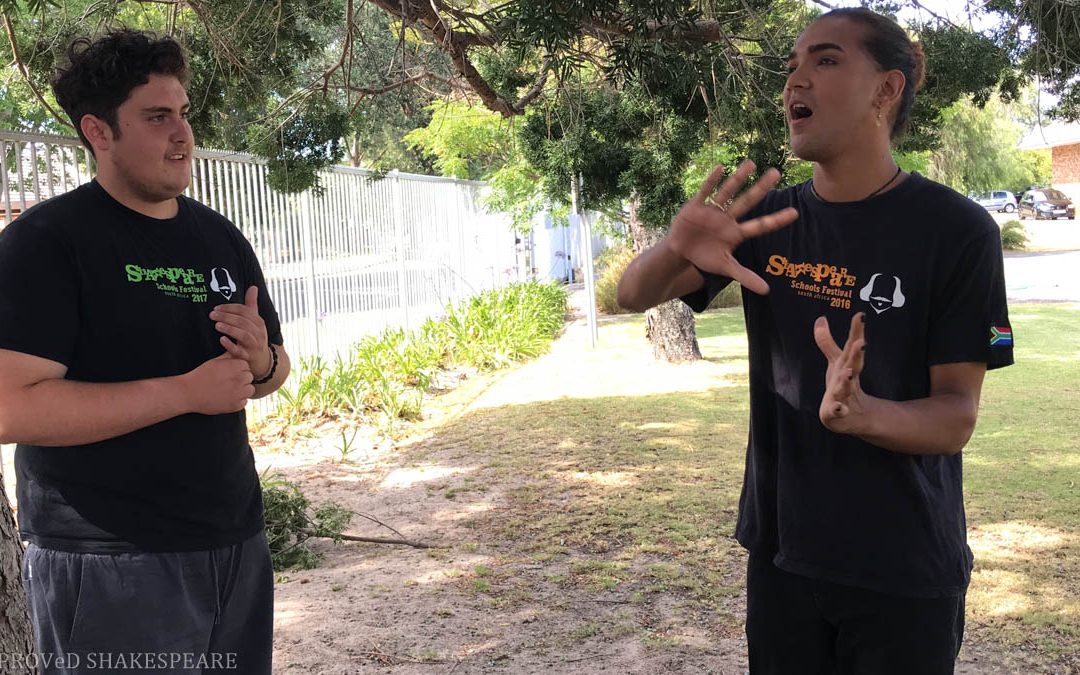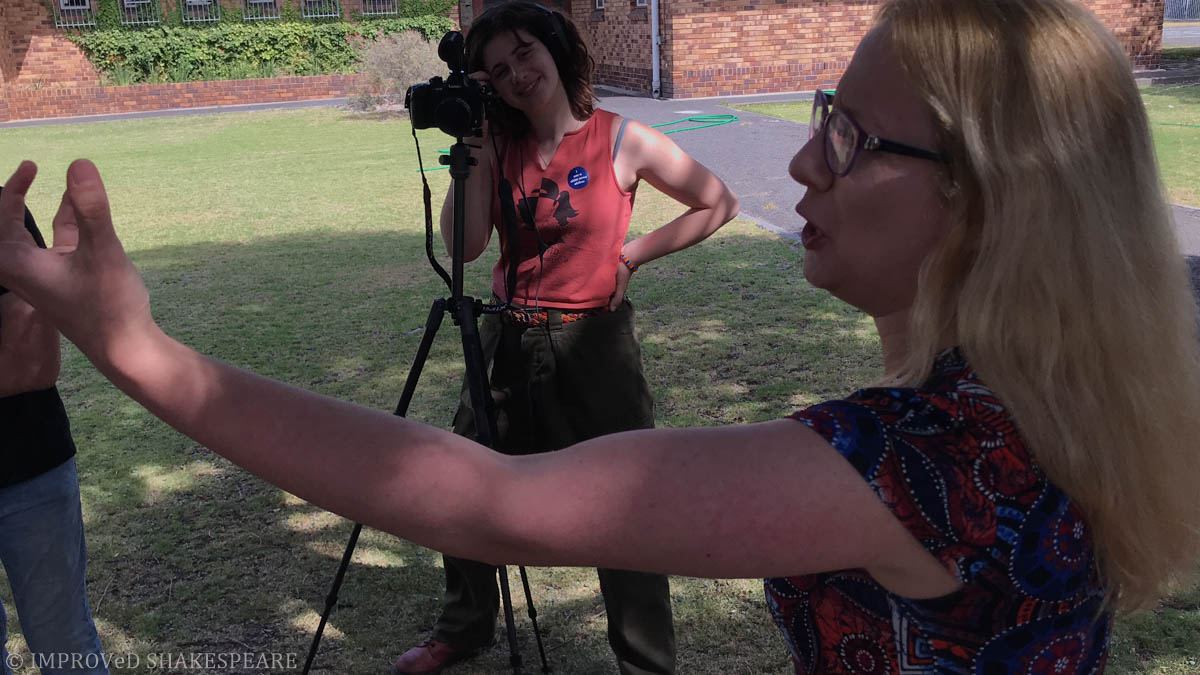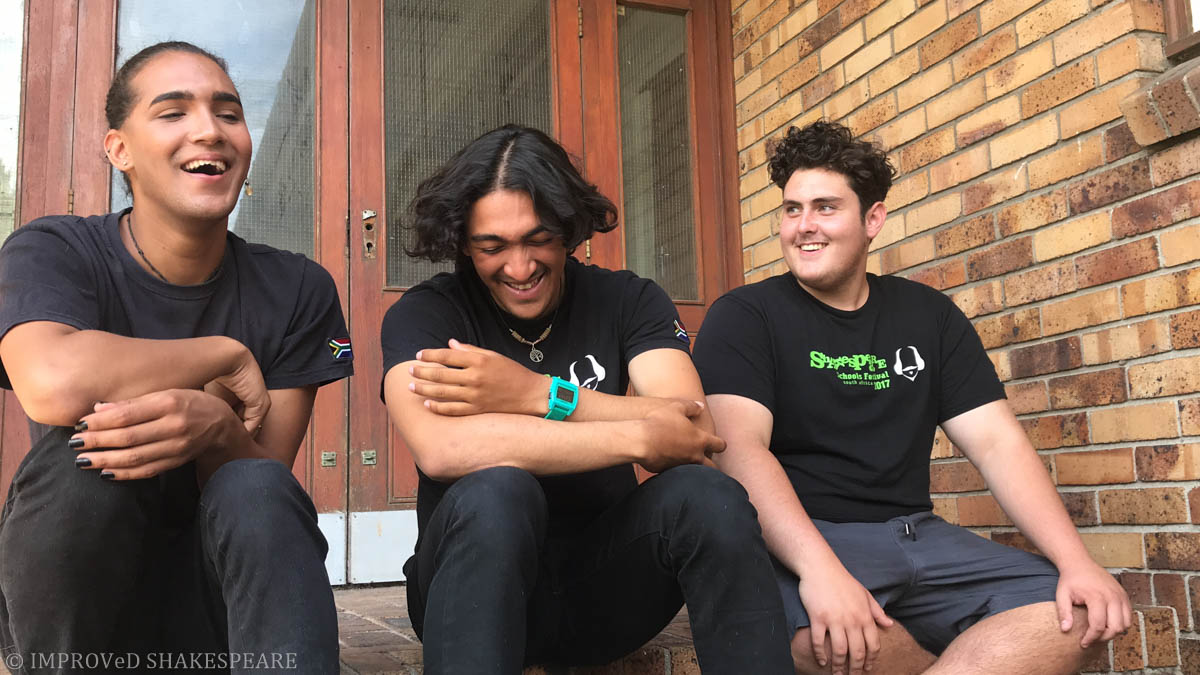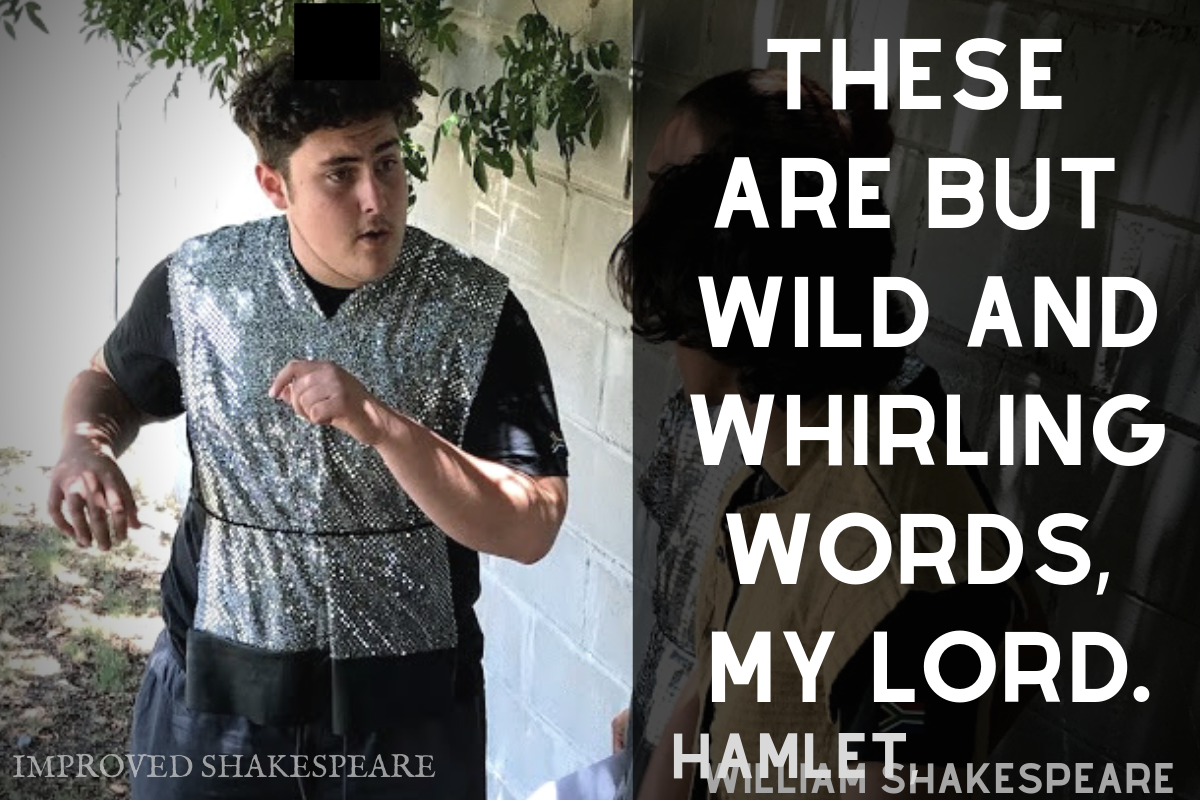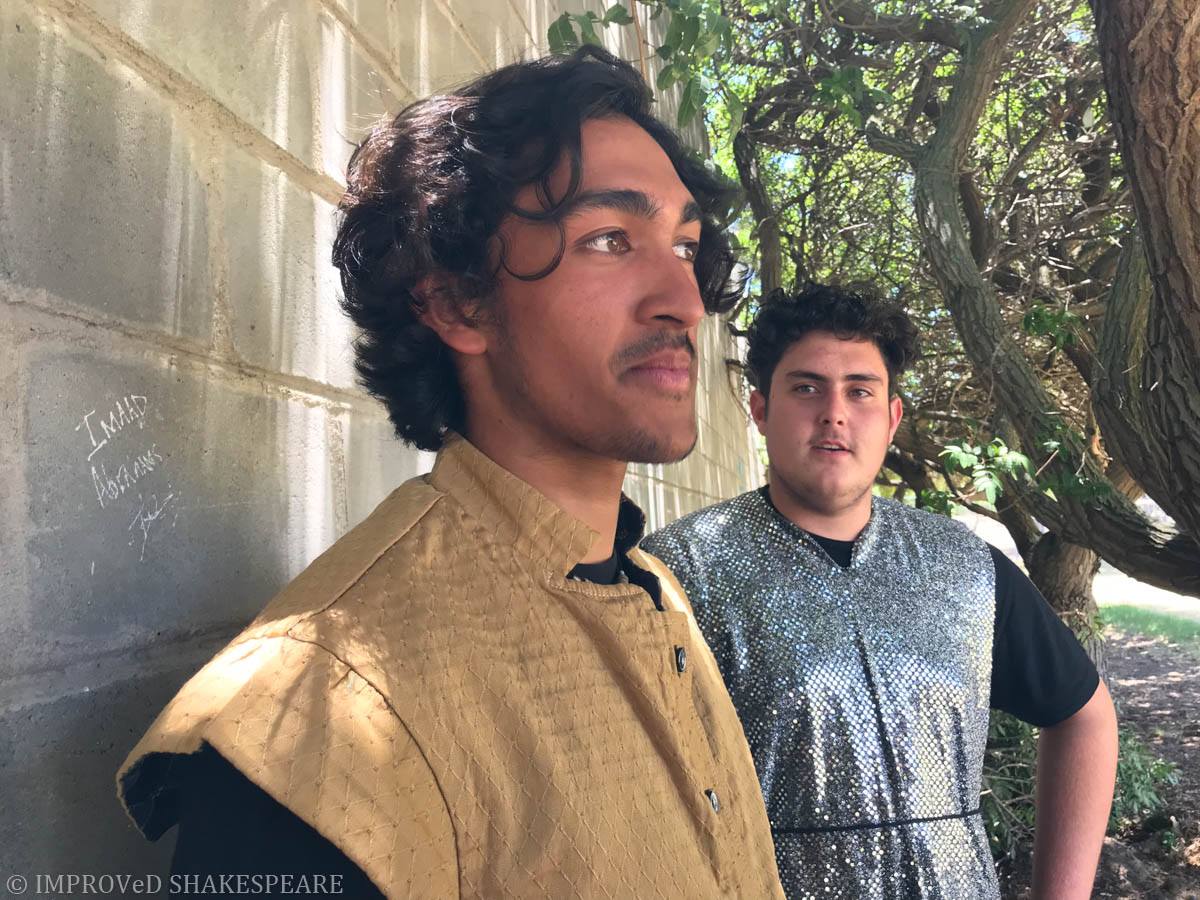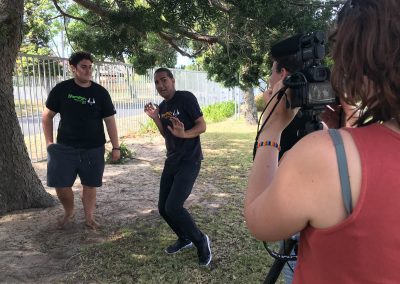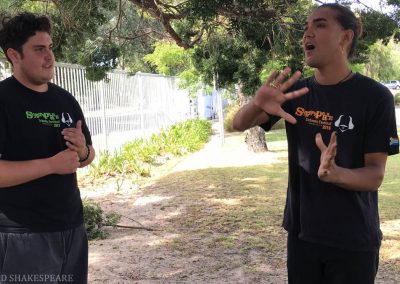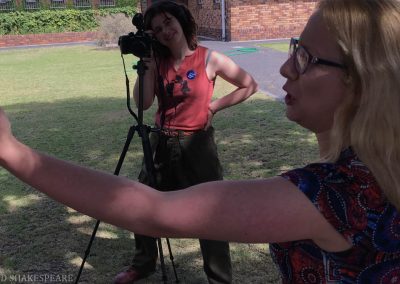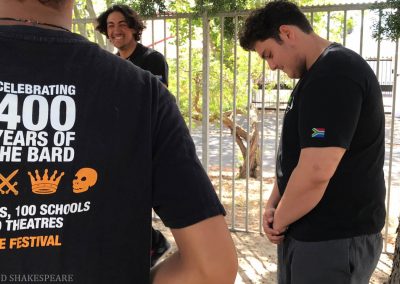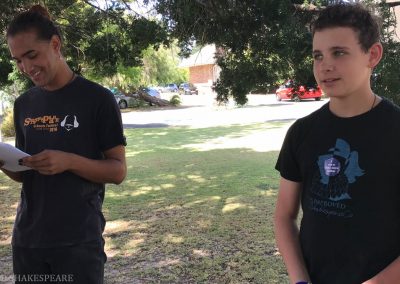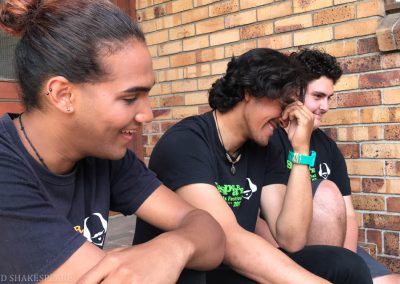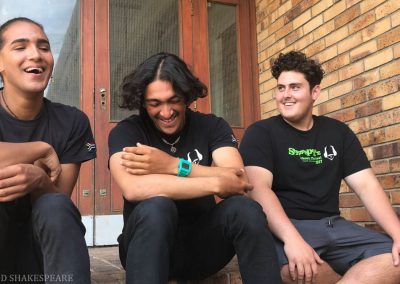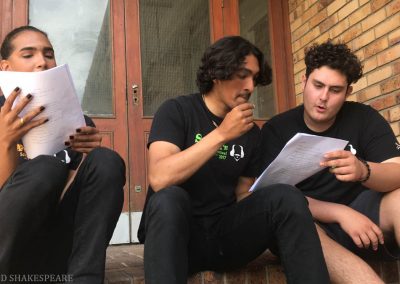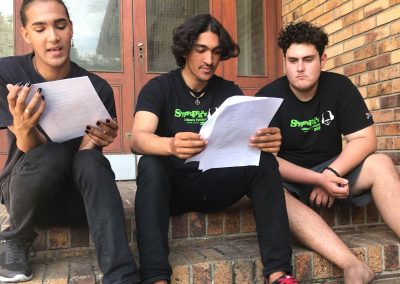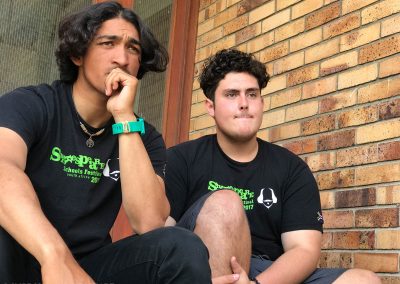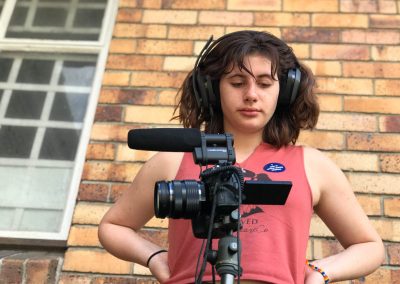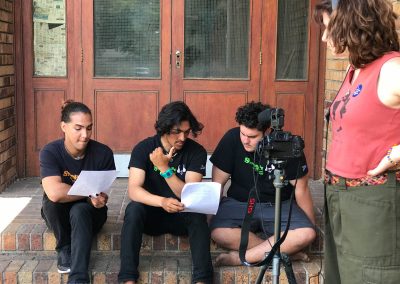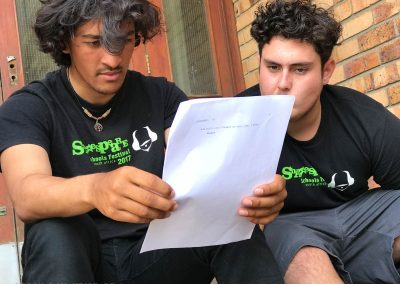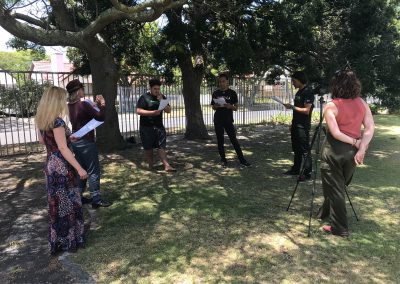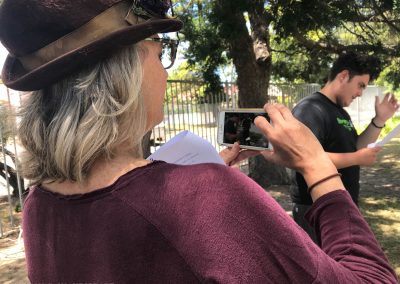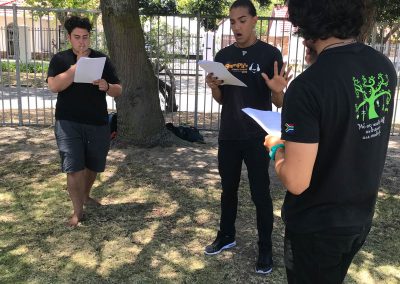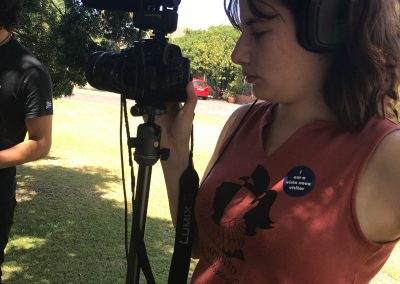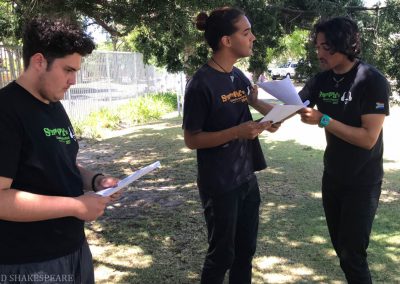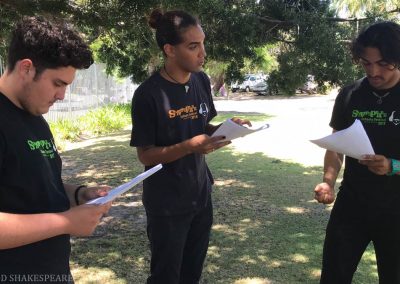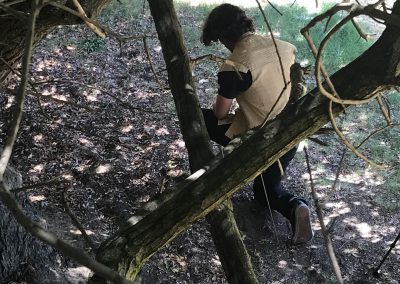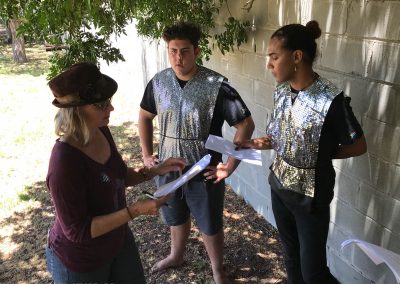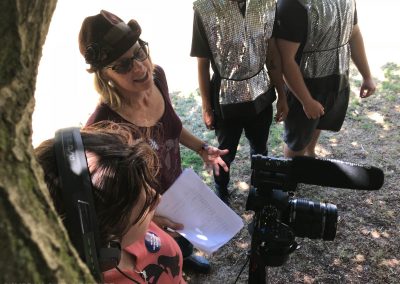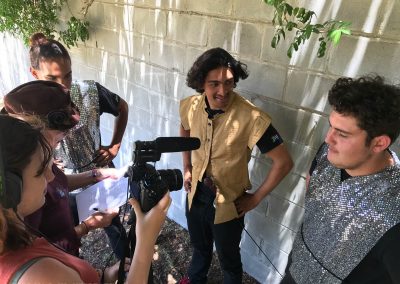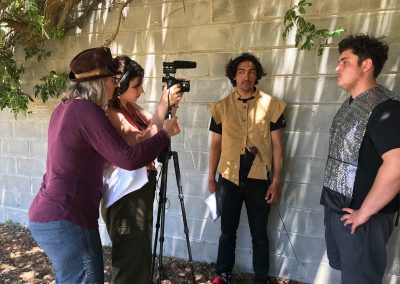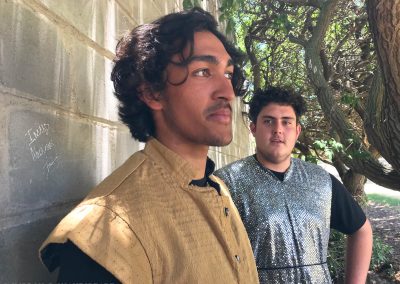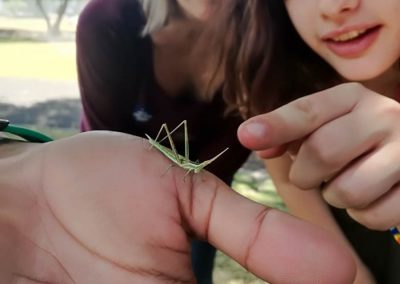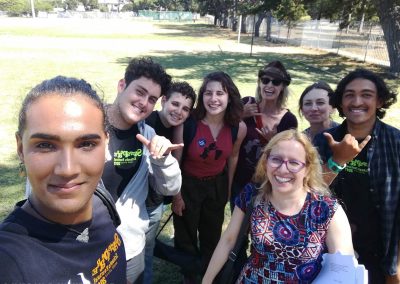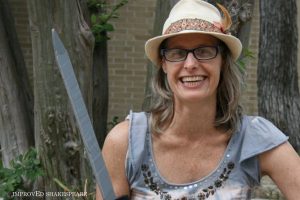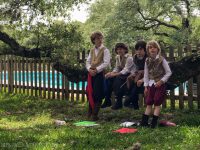There is a Shakespeare Schools Festival South Africa? Or, “What is Shakespeare Schools Festival?” is the question my American readers may be asking. At length, the new year brought us to a new country. Hence, January found us in Cape Town. Cape Town feels like the edge of the world. Obviously, the Antarctic lies off in the distance. However, as you’re standing on shore, looking out at the distance, there’s a feeling of vast potential in the unknown. Global Hamlet with Vista Nova Drama Club and Shakespeare Schools Festival South Africa felt similarly. In essence, Shakespeare says it best:
“Only I have left to say,
More is thy due than more than all can pay.”
– Macbeth
[the_ad id=”4426″]
SHARING SHAKESPEARE WITH VISTA NOVA
Earlier, in a previous post on Episode 5 of Global Hamlet, I mentioned my new process for finding participants in the project. Before venturing to South Africa, I expanded my google keyword search to include ‘Shakespeare societies.’ Consequently, I stumbled upon Shakespeare ZA and Chris Thurman. As a result, I was able to connect with Lauren Bates of Vista Nova Drama Club and Kseniya Filinova-Bruton of Shakespeare Schools Festival South Africa.
Straightaway, Lauren introduced me to three young Vista Nova graduates. Experienced in Shakespeare, they are intelligent, talented, enthusiastic, funny, as well as fun. Thus, the workshop quickly turned into a shared collaboration. There, we delighted in discovering alternative approaches to Shakespeare.
Although I am not privy to the life experiences of these young men, I like to think Shakespeare played a part in their success. Likewise, I see how participating in Shakespeare productions positively affects younger students, also timorous Kids. Indeed, participating in the theatre of any sort can improve self-confidence, including eloquence. However, being in a Shakespeare production results in an additional level of awe. Typically, one finds Shakespeare reserved for the scholarly among us.
VENTURING INTO THE UNKNOWN
Admittedly, the irony of bringing Global Hamlet to South Africa doesn’t evade me. For one thing, I ask myself a few questions. First, for a country devastated by British colonialism, I wonder how I can tout William Shakespeare as a chance to unite youth? Also, I considered the effect of the subsequent apartheid era on these young people.
Then again, these are not new questions. Shakespeare ZA, Shakespeare Schools Festival SA, plus multiple theatre artists and academics are fully aware of the paradox. Here, there is a continual dialogue with teachers, including students, to discover where Shakespeare fits in South African society. Notably, the question they have asked among themselves: does Shakespeare even belong?
Undeniably, it’s a valid question. For example, many schools ponder the same problem in the USA. However, without a doubt, within Shakespeare’s stories, we find parallels to human behavior in every culture. Besides, Shakespeare wrote for the people. In my opinion, I’m sure he would find tremendous joy if he knew his stories were jumping off points for cultural expression.
[the_ad id=”4426″]
CULTURAL EXPRESSION AND SHAKESPEARE SCHOOLS FESTIVAL SOUTH AFRICA
Now, speaking of cultural expression, I’ve found an inherent flaw in the Global Hamlet project. Before the trip, my mentor, Susan Gayle Todd, asked: Would it not be wiser to use the time abroad to make connections for working on a future project, rather than scrambling to succeed with such an ambitious undertaking? In due time, the perceptiveness of her query became more apparent.
In other words, we simply don’t have enough hours to share each group’s take on Shakespeare. Thus, the project has become a blend of the two ideas. Consequently, we are mounting an around-the-world production, but we are also making connections for future collaborations.
Hence, this year, while we meet youth, plus their teachers, including directors around the world, we are sharing how connected youth are by the Bard. Next year, different plans are underway. For one thing, each country will create their version of a specific scene in an ongoing Shakespeare story. To that end, we will learn about the many faces of Shakespeare as expressed by the multitude of cultures in our world. But for now, we share with you Global Hamlet with Vista Nova Drama Club and Shakespeare Schools Festival South Africa in Cape Town, ZA.
[the_ad id=”4426″]
GLOBAL HAMLET EPISODE 6.1: CAPE TOWN, SOUTH AFRICA
Honestly, I had a Narration script written for this scene, but we didn’t use it. As has been noted, we ran out of time. In truth, we shot this scene in ten minutes, with the players improvising the gist of what needed to be said.
Be that as it may, this is a great exercise to try with your students. Until a pupil can explain the story in their own words, it’s hard to know if they truly understand it. Equally important, allow your learners to use slang or their generation’s expressions. Indeed, that’s what Shakespeare did.
[the_ad id=”4426″]
GLOBAL HAMLET EPISODE 6.2: CAPE TOWN, SOUTH AFRICA
Since we shot on the grounds outside Vista Nova, we were defenseless against the elements. In this case, a random leaf blower, dappled sunlight, recess, school bells, including curious kids, all conspired against us.
But, just like one would do at a theatre production, we invite you to employ suspension of disbelief as you view this episode. So please, ignore those elements.
Additionally, this is the moment where we met Kseniya of Shakespeare Schools Festival South Africa. Aren’t familiar with Shakespeare Schools Festival? To explain, it is a gala begun in the UK. In short, the festival brings together school children from around the country. Together, they perform snippets of Shakespeare in professional theatres. It has inspired similar festivals in numerous other countries, including South Africa. Regrettably, we don’t have anything comparable in the US. Also, unfortunate for us, we weren’t able to attend SSF SA because it takes place every April, and, as you may recall, it was only January.
[the_ad id=”4426″]
GLOBAL HAMLET EPISODE 6.3: CAPE TOWN, SOUTH AFRICA
Whereas one appreciates the poetry of Shakespeare’s verse, sometimes it becomes too tedious. Especially in our day and age of the 240-character tweet.
Despite the wordy nature of his plays, there was a reason for the repetition. I liken it to optimizing your blog posts for SEO keyword searches. Most people don’t know that the Renaissance audience was very different from our modern one. For instance, while we sit silently in our darkened theatres, the Renaissance audience was often standing. Besides, the performances took place during daylight hours. Furthermore, it was not uncommon for audience members to socialize during the performance. For example, eating, drinking, talking – all was acceptable. Subsequently, reiteration was necessary to keep the audience apprised of what was happening on stage. (As it is necessary in the chaos of the Internet to apprise those search engines of what is happening on your blog.)
Admittedly, I don’t know if scholars will agree with my assessment. Surely, they would beg to differ. However, since it’s most likely I would have been one of the groundlings of the time, possibly even selling rotten vegetables in the standing area, I abide by my assumption, as someone ‘in the know.’
What’s more, there is something very freeing about expressing a thought with such loquaciousness. Lauren Bates shared this exercise with the group as a playful warm-up. On the whole, it oiled the brain gears, focused us in the present, energized, plus amused us all at the same time.
| Type: | Improvisation Game – Warm Up |
|---|---|
| Purpose: | To experiment with the more verbose style of dialogue popular in plays during Shakespeare’s era. But, by using more accessible modern language. And to warm up the mind, focus, as well as energize the group. |
| Preparation: | Assemble the group in a circle. You will play this exercise around the circle, alternating Players A, B, and C. |
| Procedure: | First, Player A makes a short, simple statement. Then, the next person in the circle, Player B, takes that sentence and elaborates, or ‘Shakespeares’ it up a bit. Last, Player C embellishes the statement and goes full on throttle ‘Shakespeare-ized,’ or over-the-top. Now, the fourth player becomes Player A, and play proceeds accordingly around the circle. The statement will grow and change throughout the exercise. But, it must retain the essence of the original utterance. |
| Side Coach: | First, “Keep the first sentence very simple.” Next, “Use more adjectives.” Last, “How many ways can you say the same thing?” |
| Notes: | This is not an easy exercise, and the Kids will have to work at it. If they’re having trouble, invite the rest of the class to share ideas for enhancement. |
[the_ad id=”4426″]
WHERE TO NEXT?
After our time in South Africa, we traveled to a tight theatre community in Jerusalem, Israel. There, ImprovEd Shakespeare rendezvoused with Crossroads Jerusalem for a scene with Ophelia and her parents.
JANUARY 2019 CAPE TOWN, SOUTH AFRICA
Enjoy our Gallery of photographs below, from Global Hamlet with Vista Nova Drama Club and Shakespeare Schools Festival South Africa in Cape Town, ZA.
[the_ad id=”4426″]
SHAKESPEARE FOR ALL
Working with Shakespeare in education frightens many. Because Shakespeare experts, including professionals, surround us. Escaping them is difficult. This can be intimidating. Thus, feelings of dread usually accompany the act of presenting, but moreover be introduced to, The Bard.
For this reason, ImprovEd Shakespeare is here to help. Founder and Director, Andee Kinzy, offers the layman’s approach to Shakespeare.
[the_ad id=”4426″]
SHAKESPEARE FOR TEACHERS AND DIRECTORS
If you’re an English teacher, a theatre director, or a well-trained Shakespeare advocate, here you will find inspiration, as well as techniques, for making our favorite bard fun for Kids. Accordingly, we present old, new and improved ideas for introducing Shakespeare to youth for the non-Shakespeare-academic. Among them, we include theatre games, improvisation, tips, tricks, plus activities for using Shakespeare in education.
SHAKESPEARE FOR KIDS
Since 2011, ImprovEd Shakespeare has been exploring The Bard with youth through theatrical performance. Our signature scripts are a mix of modern narration plus original Shakespeare verse. With a focus on the story, including an abbreviated script length, our productions entertain all ages. Moreover, our catalog goes beyond the oft-used Midsummer Night’s Dream, or Romeo and Juliet. And still, young people find much to their delight among many of Shakespeare’s works. Consider subscribing to our YouTube channel for family-friendly Shakespeare videos.
PERFORMANCES
Each fall and spring, ImprovEd Shakespeare develops a new production for live performance. In honor of the traditional Renaissance traveling troupe, during a period of a few weeks, we present Kid-friendly plays at various venues around town. Our Players, between 3rd-11th grade, gear themselves with playful, as well as engaging interpretations of works by the Bard of Avon. Suitable for all ages, each performance runs for about an hour.
Furthermore, these shows are always FREE. However, we gladly accept Donations! Additionally, visit ImprovEd Shakespeare, Shakespeare for Kids by Kids on Facebook, Instagram, & Twitter. And don’t forget to click on our BLOG for the stories behind these videos.
